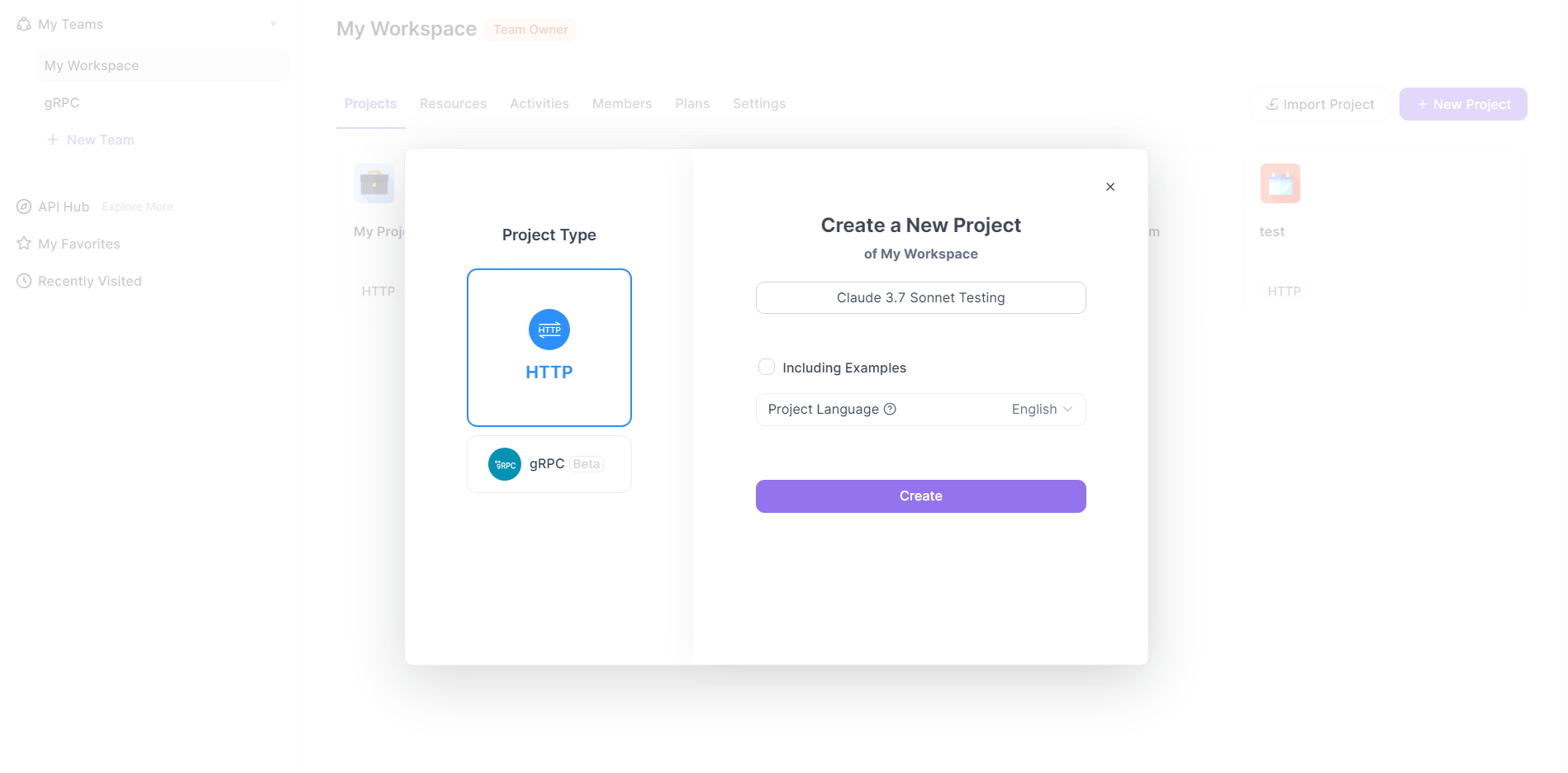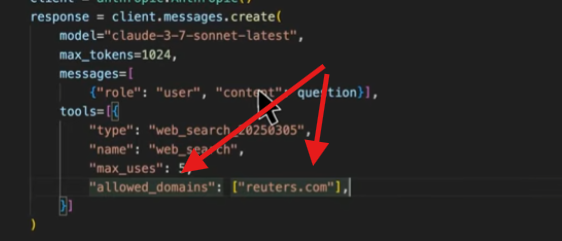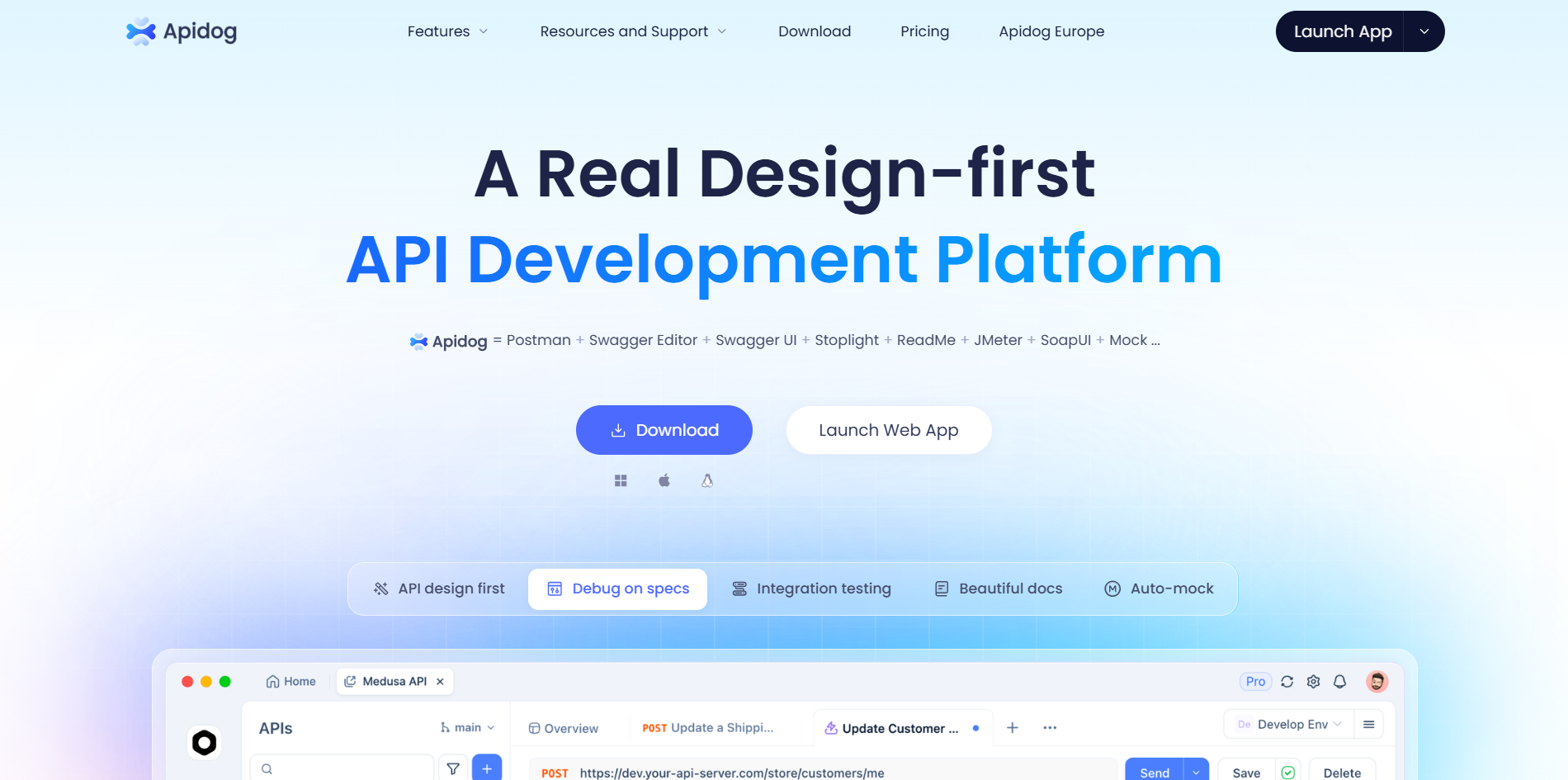Giving your AI the ability to tap into real-time web data is like handing it a superpower. And that’s exactly what the Claude Web Fetch API Tool does for Claude, Anthropic’s conversational AI. Launched in beta in 2025, this API empowers Claude to retrieve full content from web pages and PDFs, breaking free from the constraints of static training data. Whether you’re building an app that needs up-to-date market trends or analyzing a PDF report, the Web Fetch Tool makes Claude a dynamic partner in fetching and processing live data. In this technical deep dive, we’ll explore what the Claude Web Fetch API Tool is, how it differs from MCP servers, its supported models, how to test it with code and tools like Apidog, and its usage and pricing details. Let’s get technical and unlock the full potential of this game-changing API!
Want an integrated, All-in-One platform for your Developer Team to work together with maximum productivity?
Apidog delivers all your demands, and replaces Postman at a much more affordable price!
What is the Claude Web Fetch API Tool?
The Claude Web Fetch API Tool is a beta feature that allows Claude to fetch and process full text content from specified web pages and PDFs via a dedicated API endpoint. Unlike traditional LLMs limited by their training data cutoff, this tool lets Claude access live web content, making it ideal for tasks requiring current information—like analyzing recent articles or extracting data from online PDFs. It’s accessed through the Anthropic API at /v1/messages with the web_fetch_20250910 tool type, requiring a beta header (web-fetch-2025-09-10) for activation.
How does it differ from an MCP (Model Context Protocol) server? While an MCP server provides a standardized way for Claude to connect to external tools or data sources (e.g., custom databases or APIs), the Web Fetch Tool is a native Anthropic feature specifically for retrieving web and PDF content. MCP servers are more flexible, allowing custom integrations, but they require setup and hosting. The Web Fetch Tool, by contrast, is a plug-and-play solution for web content, with built-in security constraints like restricted URL construction to prevent data exfiltration. Think of MCP as a custom bridge and the Web Fetch Tool as a prebuilt highway for web data.

Claude Web Fetch Supported Models
The Claude Web Fetch API Tool is supported by a range of Claude models, ensuring flexibility for different use cases. As of September 2025, the compatible models are:
- Claude Opus 4.1 (
claude-opus-4-1-20250805) - Claude Opus 4 (
claude-opus-4-20250514) - Claude Sonnet 4 (
claude-sonnet-4-20250514) - Claude Sonnet 3.7 (
claude-3-7-sonnet-20250219) - Claude Haiku 3.5 (
claude-3-5-haiku-latest)
These models can leverage the Web Fetch Tool to fetch content when included in an API request with the appropriate beta header. This broad compatibility ensures developers can choose the model that best fits their needs, from high-performance Opus to cost-efficient Haiku.

How to Test the Claude Web Fetch API Tool with Code
Testing the Claude Web Fetch API Tool is straightforward using the Anthropic API. You’ll need an API key (generated in the Anthropic Console) and the beta header web-fetch-2025-09-10. Here’s a sample curl command to fetch content from a URL:
curl https://api.anthropic.com/v1/messages \
--header "x-api-key: $ANTHROPIC_API_KEY" \
--header "anthropic-version: 2023-06-01" \
--header "anthropic-beta: web-fetch-2025-09-10" \
--header "content-type: application/json" \
--data '{
"model": "claude-opus-4-1-20250805",
"max_tokens": 1024,
"messages": [
{
"role": "user",
"content": "Please analyze the content at https://example.com/article"
}
],
"tools": [
{
"type": "web_fetch_20250910",
"name": "web_fetch",
"max_uses": 5,
"allowed_domains": ["example.com"],
"citations": { "enabled": true },
"max_content_tokens": 100000
}
]
}'
If you prefere python:
import anthropic
client = anthropic.Anthropic()
response = client.messages.create(
model="claude-opus-4-1-20250805",
max_tokens=1024,
messages=[
{
"role": "user",
"content": "Please analyze the content at https://example.com/article"
}
],
tools=[{
"type": "web_fetch_20250910",
"name": "web_fetch",
"max_uses": 5
}],
extra_headers={
"anthropic-beta": "web-fetch-2025-09-10"
}
)
print(response)This request tells Claude to fetch and analyze content from https://example.com/article. Key parameters include:
- max_uses: Limits the number of fetches (e.g., 5) to control resource usage.
- allowed_domains: Restricts fetches to trusted domains (e.g.,
example.com). - citations: Enables source references in responses.
- max_content_tokens: Caps content length to manage token consumption.
The response will include the fetched content, analyzed by Claude, with optional citations linking back to the source. For PDFs, Claude automatically extracts text, making it easy to process reports or documents.
Testing with Apidog
To ensure your Claude Web Fetch API Tool integration is bulletproof, testing with a tool like Apidog is a smart move. Apidog, a powerful API testing platform, simplifies validating endpoints and responses. According to Apidog’s guide on Claude’s Web Search API, you can test the Web Fetch Tool as follows:
- Set Up Apidog: Download Apidog from apidog.com/download or use the web version. Create a new project.

2. Add the Endpoint: Input the Anthropic API endpoint (https://api.anthropic.com/v1/messages) and configure headers (x-api-key, anthropic-version, anthropic-beta).

3. Test Requests: Create a request mirroring the curl example above. Specify a test URL (e.g., https://example.com/article) and validate the response schema, ensuring fields like content and citations are correct.

4. Debug Errors: Use Apidog’s interface to check for issues like invalid API keys, blocked domains, or rate limits. Test edge cases, such as fetching a PDF or hitting the max_uses limit.
Apidog’s visual tools make it easy to iterate, ensuring your Web Fetch Tool integration is production-ready. It’s especially useful for verifying that Claude correctly processes fetched content without errors.
Usage and Pricing
Using the Claude Web Fetch API Tool is seamless, but it comes with specific considerations:
- Usage: The tool is invoked by including it in the
toolsarray of an API request. Claude decides when to fetch content based on the prompt and available URLs, retrieving full text or extracting PDF content. You can limit fetches withmax_usesor restrict domains withallowed_domainsto enhance security. The API supports up to 100,000 content tokens per fetch, sufficient for most web pages or documents. - Pricing: As of September 2025, the Web Fetch Tool is in beta and included in standard API usage for supported models. However, it incurs additional token costs for fetched content, which counts toward your model’s token limits. Pricing depends on the model used (e.g., Opus 4.1 is pricier than Haiku 3.5). Check Anthropic’s pricing at docs.anthropic.com for details, as beta features may have promotional rates. For organizations, Enterprise plans offer volume discounts and admin controls for managing API costs.
Be mindful of token consumption, especially with large web pages or PDFs, and use max_content_tokens to cap costs. The beta status means you should provide feedback via Anthropic’s form to help refine the tool.
Security Considerations When using Claude's Web Fetch API Tool
The Claude Web Fetch API Tool is designed with security in mind, but it’s not without risks. To prevent data exfiltration, Claude cannot dynamically construct URLs—it only fetches user-provided URLs or those from prior web search/fetch results. You can further secure it by:
- Setting
allowed_domainsto trusted sites (e.g.,["docs.example.com"]). - Using
blocked_domainsto exclude risky sites. - Limiting
max_usesto control fetch frequency.
However, prompt injection attacks remain a concern, where malicious content in fetched pages could influence Claude’s behavior. Anthropic recommends using the tool in trusted environments and monitoring responses for anomalies. If data security is critical, consider disabling the Web Fetch Tool entirely or restricting it to vetted domains.

Conclusion
The Claude Web Fetch API Tool is a powerful leap forward for Claude, enabling it to tap into live web and PDF content with ease. By integrating this API into your workflows, you can supercharge Claude’s ability to deliver timely, context-rich responses. From testing with Apidog to configuring secure fetches, this tool is a developer’s dream for building intelligent applications. While its beta status and token costs require careful management, the Web Fetch Tool opens up endless possibilities for real-time data analysis. So, grab your API key, fire up a test in Apidog, and let Claude explore the web like never before!




